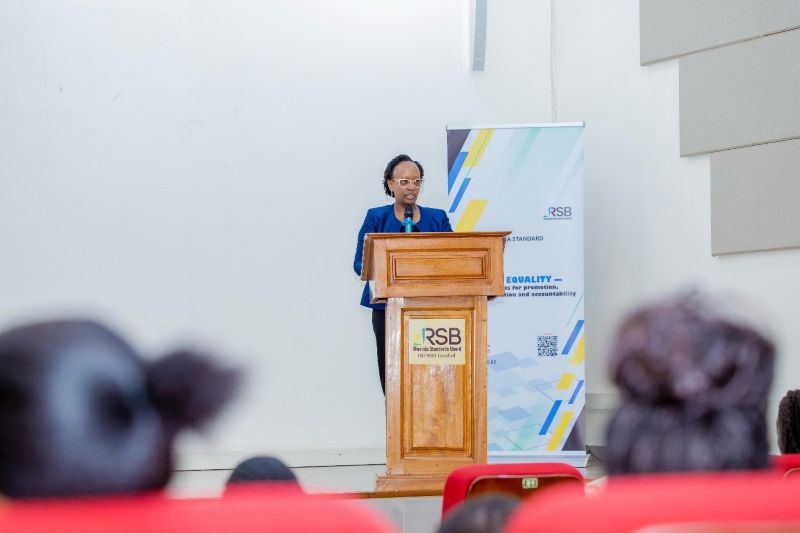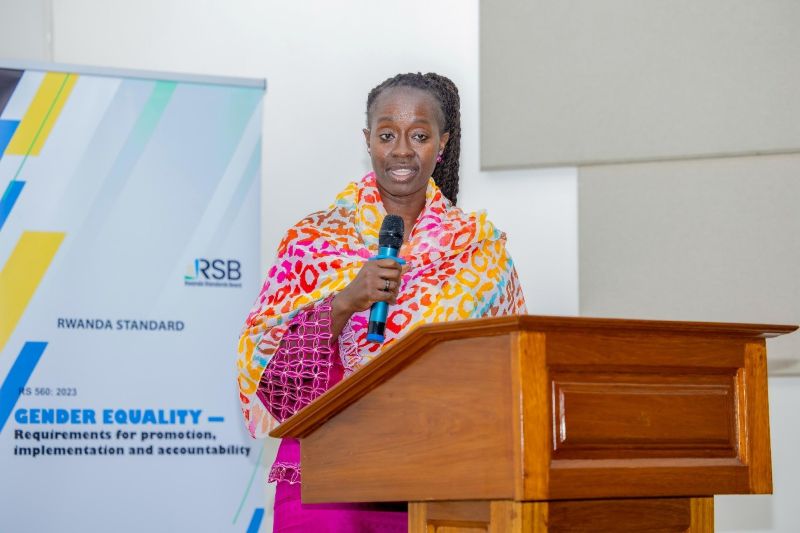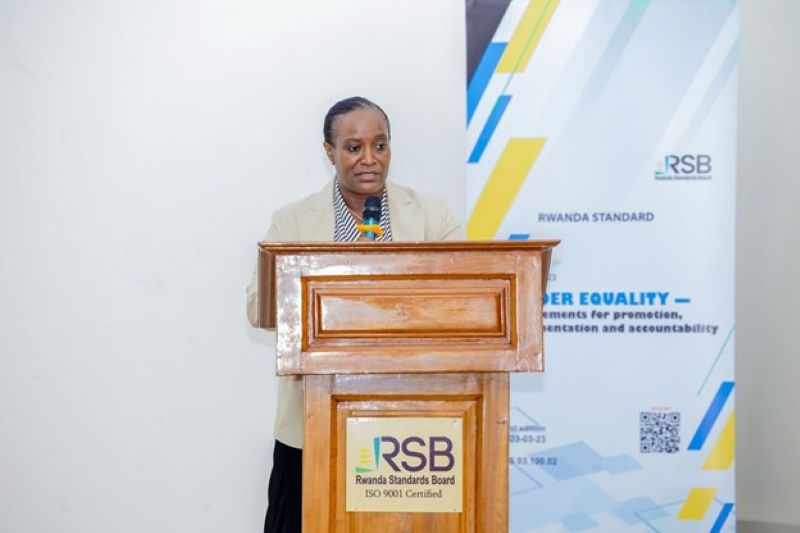Rwanda Hosted the High-Level Dialogue to Kick off the Certification Against RS 560:2023 Gender Equality National Standard
On 15th May, 2025, Rwanda Standards Board (RSB), in partnership with the Gender Monitoring Office (GMO) and the United Nations Development Programme (UNDP) in Rwanda, convened a High-Level Dialogue at the RSB Conference Hall to promote the implementation and certification of the newly developed RS 560:2023, a pioneering national standard that integrates gender equality into organizational operations and governance.

Group photo
Bringing together leaders from public institutions, the private sector, and development partners, the dialogue aimed to reflect on the progress of the Gender Equality Seal Programme, provide insights into the RS 560 certification journey, and mobilize stakeholders to commit to the promotion of gender-responsive business practices.

Mr Raymond Murenzi, DG/RSB
While welcoming Leaders and Stakeholders, Mr Murenzi Raymond, Director General of RSB noted:
“Certification against management systems and social responsibilities standards such as RS 560, is increasingly becoming a prerequisite for entering global markets, and once this certification is acquired, it becomes a competitive advantage that opens doors to new market opportunities that were previously inaccessible. While improved enterprises competitiveness being achieved through implementation of standards is a crucial strategy for fostering economic growth and gender equality, Standards are essential for enhancing business credibility and increased market access.”
RS 560:2023 was developed through a collaborative effort by RSB, GMO, UNDP Rwanda, and the Private Sector Federation (PSF), and it lays out clear requirements for organizations seeking to institutionalize gender equality across all levels of operation. It builds on the internationally recognized Gender Equality Seal Certification Programme and aligns with Sustainable Development Goal 5 (Gender Equality).

Ms Umutoni G Nadine, Chief Gender Monitor
“Rwanda's proactive approach to institutionalizing gender accountability to gender equality through standards like RS 560:2023 and programs like the Gender Equality Seal Certification programme (GES) demonstrates the country's dedication to creating inclusive and equitable workplaces”said Chief Gender Monitor Umutoni Gatsinzi Nadine
The standard provides a framework for evaluating how planned activities, policies, and organizational systems impact both women and men. Certification against RS 560 does not only signals a commitment to inclusive governance but also unlocks access to global markets by aligning with international social responsibility standards.
At the event, participants explored how to strengthen the role of top leadership in steering their organizations toward RS 560 certification, and how Rwanda can lead by example in positioning gender-responsive standards on the continental and global stage.

Dr Fatmata Sesay, UNDP Rwanda Resident Representative
“RS 560 is more than a certification; it is a strategic tool to advance inclusive and equitable development by embedding gender equality into institutional culture and practice” said Fatmata Sesay the Resident Representative of UNDP Rwanda

Hon. Consolée Uwimana, Minister
Officiating the closing of that event, Honourable Consolée Uwimana, Minister for Gender and Family Promotion urged all institutions to go beyond compliance by revisiting internal policies, programs and practices to ensure fairness by amplifying voices for both women and men, and promoting systems that challenge stereotypes and foster shared responsibilities to support Rwanda’s journey towards sustainable socio-economic development:
"We believe that inclusive growth is not just a social imperative, but a strategic advantage. The RS 560:2023 standard on gender equality provides a clear and measurable pathway for businesses and organizations to create equitable workplaces, drive innovation, and build resilience. Today’s high-level dialogue is more than a conversation — it is a call to action for our members to lead by example, champion certification, and set a new benchmark for sustainable development through gender equity."
The implementation of gender standards in workplaces is crucial for creating more inclusive and equitable workplaces, promoting gender equality, and reaping the many benefits that come with inclusive workforce. These include improving employee morale, increasing productivity and creativity, and enhancing the institution's reputation and brand image. By promoting gender equality and diversity, organizations can also better reflect inclusive customer base leading to increased business success.